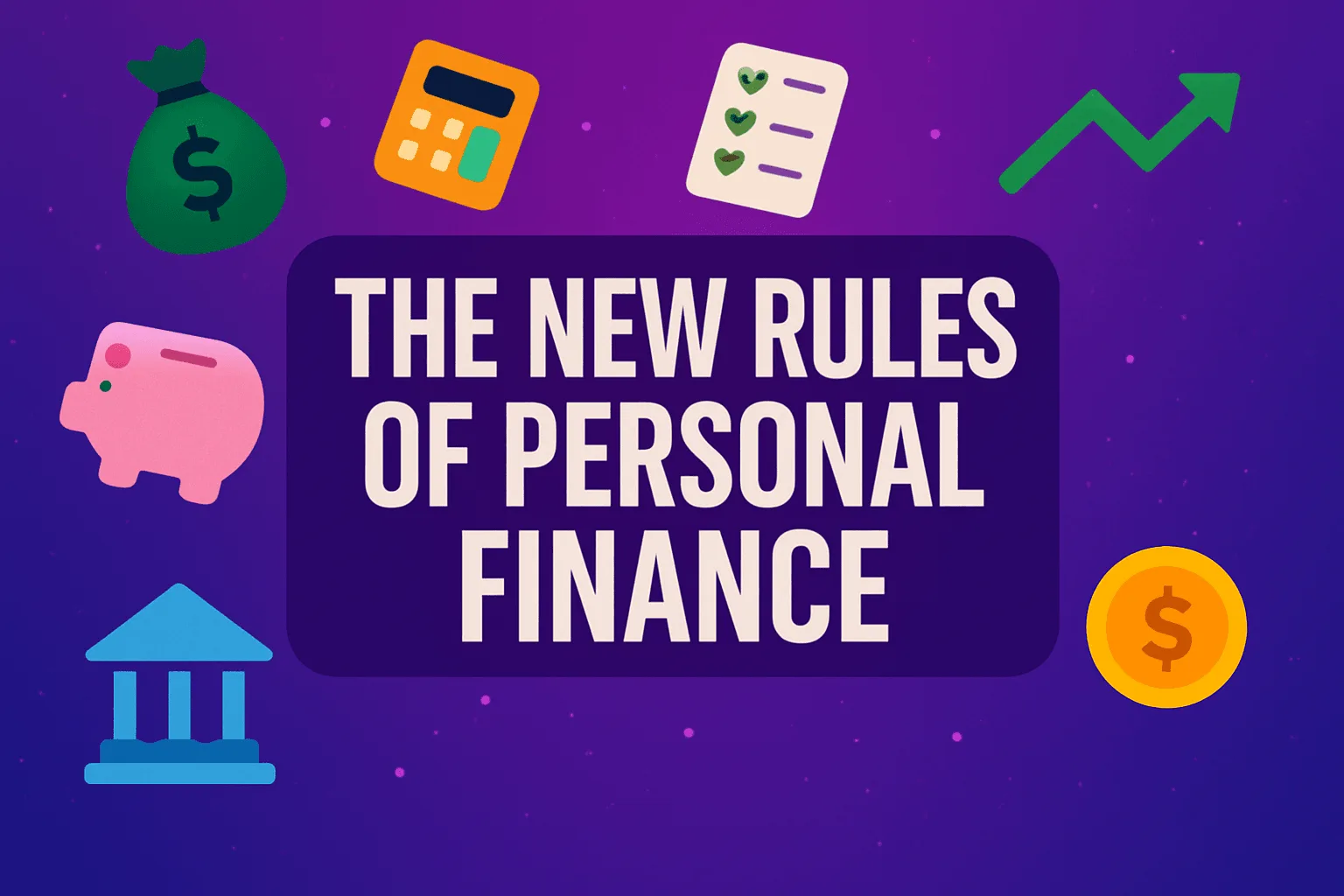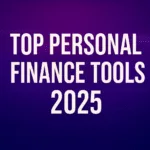Personal finance has evolved dramatically over the past few years. Traditional advice about budgeting, saving, and investing still holds, but technology has introduced new tools, habits, and expectations. Managing your money in 2025 is not about checking a monthly statement. It is about real-time insights, automated decisions, and smarter financial ecosystems. Understanding the new rules of personal finance is crucial for individuals seeking to build wealth, manage risk, and achieve long-term goals in a digital-first world.
Real-Time Financial Awareness

Gone are the days when people tracked expenses with pen and paper or reviewed finances once a month. New rules of personal finance means tha today, financial awareness is continuous. Banking apps, budgeting tools, and digital wallets provide real-time notifications about spending, income, and investment performance.
Apps like Revolut, Monzo, and Mint deliver transaction updates instantly. Users can categorise spending, set goals, and get nudges when they are close to exceeding budgets. This creates a proactive approach to money management, helping users make better decisions in the moment rather than reacting later.
For many, financial control now happens through a combination of mobile notifications, AI-driven insights, and daily engagement rather than once-a-year reviews.
Automating Savings and Investments

One of the biggest shifts in personal finance is the automation of positive financial behaviours. Micro-saving tools like Plum and Cleo round up purchases and transfer small amounts into savings or investment accounts automatically. Robo-advisors such as Betterment, Wealthfront, and Nutmeg automate portfolio management based on risk tolerance and financial goals.
Automatic bill payment systems ensure essentials like rent, utilities, and credit cards are paid on time, avoiding late fees and improving credit scores. Automation removes the friction and discipline challenges that once made saving and investing difficult for many people.
The key to mastering personal finance in 2025 is setting up systems that work in the background, so savings and investing happen before discretionary spending even begins.
Embracing Digital Assets Cautiously

Cryptocurrencies and decentralised finance (DeFi) are increasingly part of the personal finance conversation. While not yet mainstream for everyone, a growing segment of consumers holds Bitcoin, Ethereum, or stablecoins as part of a diversified portfolio.
Platforms like Coinbase, Kraken, and Gemini offer regulated, user-friendly access to digital assets. However, volatility remains a major concern. Personal finance experts increasingly recommend treating crypto like high-risk venture capital — allocating only a small, managed portion of one’s overall portfolio.
Smart personal finance in 2025 involves understanding digital assets, but not overexposing oneself to their risks without a clear, balanced strategy.
Prioritising Financial Wellness, Not Just Wealth

Personal finance today is as much about mental health and life satisfaction as it is about balance sheets. Financial wellness apps help users reduce debt, plan for emergencies, and manage stress related to money.
Companies like Brightside and Payactiv offer employer-sponsored financial wellness benefits, recognising that employees with financial security are more productive and engaged. Individual apps now offer integrated mental health support alongside financial coaching.
The focus is shifting from merely maximising returns to building resilience, confidence, and flexibility in personal financial lives.
Ethical and Sustainable Money Management

Consumers are increasingly aligning their financial decisions with their values. ESG (Environmental, Social, and Governance) investing is growing rapidly, with funds and robo-advisors offering portfolios built around sustainability criteria.
Digital banks like Aspiration promote ethical banking, claiming not to finance fossil fuels or industries linked to human rights abuses. Fintech apps are helping users track the environmental impact of their spending and invest in green projects.
Personal finance in 2025 includes making conscious decisions about where money is saved, invested, and spent, reflecting a broader shift toward responsible capitalism.
Mastering personal finance in 2025 requires more than basic budgeting. It demands leveraging technology, embracing automation, staying financially literate about new asset classes, and aligning money with personal values.
















